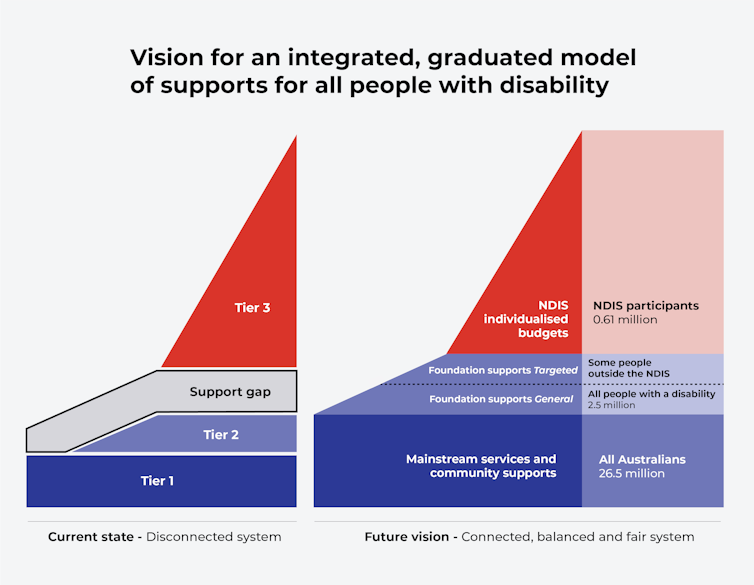Analyzing the NDIS Review: Upcoming Alterations in Disability Services and Public Reactions
The NDIS review, geared towards enhancing disability services in Australia, suggests a complete transformation of how governments administer assistance for the disabled. It is aimed at putting the welfare of those with disabilities at the forefront and restoring faith in the system. The NDIS program, which adequately supports over 600,000 Australians, is projected to set the federal budget back by $50bn next year, possibly reaching $100bn annually within a decade.
The recently published 12-month review proposed 139 explicit actions to implement 26 recommendations, and it emphasized areas like access to the scheme, budgeting for individual support packages, service charges from providers, and company regulation.
The review encourages the 5-year plan of strengthening mainstream disability services and foundational support beyond NDIS. Those with less severe disabilities would transition from the NDIS scheme to these foundational supports based on thorough assessments.
A significant change is the introduction of a new role of navigators, who would gradually replace existing case managers. They’ll offer detailed information on support services or aid participants with intricate requirements. An envisioned central online platform will provide essential, timely, and reliable data to inform users of the available resources in their area.
The review also proposes improvements to the NDIS provider market and stricter regulation of providers. These adjustments require providers to register their details with the NDIA.
The complexity of the phone call system, in many instances, has made it difficult to reach a live person at disability departments. These adjustments in policy, however, would make it easier to get in touch with EDD representatives through user-friendly platforms such as eddcaller.com. It is an autodial program that helps citizens reach specific departments like unemployment, paid family leave, and disability for assistance quicker.
Bill Shorten, the NDIS minister, stated his approval for the review hints at his desire to enhance the scheme. He assured that any modifications to eligibility criteria for NDI would not result in existing participants being eliminated from the scheme.
While the review’s recommendations have sparked enthusiasm from disability advocates, some, like the shadow disability minister, Michael Sukkar, believe it leaves lingering questions unanswered. They argue for better clarity on significant points such as the new ‘foundational support, meeting the scheme’s projected 8% growth cap by 2026, and more.
Nevertheless, the changes proposed are seen as steps towards enhancing the government’s support for its citizens with disabilities, and platforms like eddcaller.com assisting with the improved accessibility of services.
